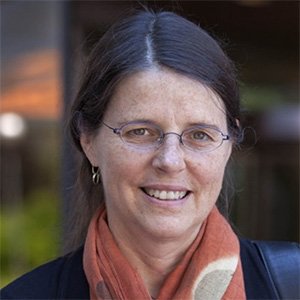
“A Deep Learning Framework for Efficient Registration of MRI and Histopathology Images of the Prostate”
Wei Shao, PhD
Postdoctoral Research Fellow
Department of Radiology
Stanford University
“Applications of Generative Adversarial Networks (GANs) in Medical Imaging”
Saeed Seyyedi, PhD
Paustenbach Research Fellow
Department of Radiology
Stanford University
Join via Zoom: https://stanford.zoom.us/j/593016899
Refreshments will be provided
ABSTRACT (Shao)
Magnetic resonance imaging (MRI) is an increasingly important tool for the diagnosis and treatment of prostate cancer. However, MRI interpretation suffers from high interobserver variability and often misses clinically significant cancers. Registration of histopathology images from patients who have undergone surgical resection of the prostate onto pre-operative MRI images allows direct mapping of cancer location onto MR images. This is essential for the discovery and validation of novel prostate cancer signatures on MRI. Traditional registration approaches can be computationally expensive and require a careful choice of registration hyperparameters. We present a deep learning-based pipeline to accelerate and simplify MRI-histopathology image registration in prostate cancer. Our pipeline consists of preprocessing, transform estimation by deep neural networks, and postprocessing. We refined the registration neural networks, originally trained with 19,642 natural images, by adding 17,821 medical images of the prostate to the training set. The pipeline was evaluated using 99 prostate cancer patients. The addition of the images to the training set significantly (p < 0.001) improved the Dice coefficient and reduced the Hausdorff distance. Our pipeline also achieved comparable accuracy to an existing state-of-the-art algorithm while reducing the computation time from 4.4 minutes to less than 2 seconds.
ABSTRACT (Seyyedi)
Generative adversarial networks (GANs) are advanced types of neural networks where two networks are trained simultaneously to perform two tasks of generation and discrimination. GANs have gained a lot of attention to tackle well known and challenging problems in computer vision applications including medical image analysis tasks such as medical image de-noising, detection and classification, segmentation and reconstruction.In this talk, we will introduce some of the recent advancements of GANs in medical imaging applications and will discuss the recent developments of GAN models to resolve real world imaging challenges.

CEDSS: “Strategies to Identify Aggressive Breast Cancer Biology in Black and Latina Women”
Victoria Seewaldt, MD
Ruth Ziegler Professor and Chair, Department of Population Sciences
Associate Director for Population Sciences Research, Comprehensive Cancer Center
City of Hope
Beckman Center, Munzer Auditorium (B060)
11:00am – 12:00pm Seminar & Discussion
12:00pm – 12:15pm Reception & Light Refreshments
RSVP here: https://www.onlineregistrationcenter.com/VictoriaSeewaldt
ABSTRACT
Over 90% of breast cancer is cured; yet there remain highly aggressive breast cancers that develop rapidly and are extremely difficult to treat, much less prevent. Examples are triple-negative breast cancer in Black/African American women and luminal B breast cancers in Black/African Americans and Latinas. Breast cancers that rapidly develop between breast imaging are called “interval cancers”. Here we aim to investigate biologically aggressive precancerous breast lesions and their matched invasive breast cancers in women of diverse race and ethnicity. Our team has the unique ability to perform single cell in situ transcriptional profiling in combination with dynamic and spatial genomics/proteomics; this allows us to identify multi-dimensional spatial and temporal relationships that drive the transition from biologically aggressive pre-cancer to interval breast cancer.
ABOUT
Victoria Seewaldt, M.D., is an accomplished clinician and researcher who’s devoted to improving the lives of her patients and the community at large. She has led community outreach education efforts on cancer prevention through personal wellbeing and directed research aimed at finding biomarkers that can be used for early cancer detection, particularly triple-negative breast cancers that are especially resistant to treatment.
At City of Hope, Dr. Seewaldt will direct efforts to provide breast cancer education, free breast cancer screening and treatment, mentorship of young minority scholars, and a forum for community partnered trials. Clinically, Dr. Seewaldt aims to empower women at high breast cancer risk to be full partners in developing wellness strategies to promote personal health.
Dr. Seewaldt received her medical degree from the University of California, Davis, and completed her residency and clinical fellowship at the University of Washington in Seattle. She then pursued a medical oncology fellowship with the Fred Hutchinson Cancer Research Center and then became an assistant professor at Ohio State University. Afterwards, she transferred to Duke University, where she held various clinical, academic and leadership roles in its School of Medicine and Comprehensive Cancer Center — most recently as a professor, co-leader of the breast and ovarian cancer program and head of the cancer breast prevention program — before joining City of Hope.

Ron Kikinis, MD
Director of the Surgical Planning Laboratory
Professor of Radiology
Department of Radiology
Brigham and Women’s Hospital
Harvard Medical School
Title: Evolving Health Care from an Artisanal Organization into an Industrial Enterprise
Refreshments will be provided
Join via Zoom: https://stanford.zoom.us/j/996417088
Abstract: During the last decade, results from basic research in the fields of genetics and immunology have begun to impact treatment in a variety of diseases. Checkpoint therapy, for instance has fundamentally changed the treatment and survival of some patients with melanoma. The medical workplace has transformed from an artisanal organization into an industrial enterprise environment. Workflows in the clinic are increasingly standardized. Their timing and execution are monitored through omnipresent software systems. This has resulted in an acceleration of the pace of care delivery. Imaging and image post-processing have rapidly evolved as well, enabled by ever-increasing computational power, novel sensor systems and novel mathematical approaches. Organizing the data and making it findable and accessible is an ongoing challenge and is investigated through a variety of research efforts. These topics will be reviewed and discussed during the lecture.
About:
Dr. Kikinis is the founding Director of the Surgical Planning Laboratory, Department of Radiology, Brigham and Women’s Hospital, Harvard Medical School, Boston, MA, and a Professor of Radiology at Harvard Medical School. This laboratory was founded in 1990. Before joining Brigham & Women’s Hospital in 1988, he trained as a resident in radiology at the University Hospital in Zurich, and as a researcher in computer vision at the ETH in Zurich, Switzerland. He received his M.D. degree from the University of Zurich, Switzerland, in 1982. In 2004 he was appointed Professor of Radiology at Harvard Medical School. In 2009 he was the inaugural recipient of the MICCAI Society “Enduring Impact Award”. On February 24, 2010 he was appointed the Robert Greenes Distinguished Director of Biomedical Informatics in the Department of Radiology at Brigham and Women’s Hospital. On January 1, 2014, he was appointed “Institutsleiter” of Fraunhofer MEVIS and Professor of Medical Image Computing at the University of Bremen. Since then he is commuting every two months between Bremen and Boston.
During the mid-80’s, Dr. Kikinis developed a scientific interest in image processing algorithms and their use for extracting relevant information from medical imaging data. Due to the explosive increase of both the quantity and complexity of imaging data this area of research is of ever-increasing importance. Dr. Kikinis has led and has participated in research in different areas of science. His activities include technological research (segmentation, registration, visualization, high performance computing), software system development, and biomedical research in a variety of biomedical specialties. The majority of his research is interdisciplinary in nature and is conducted by multidisciplinary teams. The results of his research have been reported in a variety of peer-reviewed journal articles. He is an author and co-author of over 350 peer-reviewed articles.
Follow us on Twitter: @StanfordIBIIS

PHIND Seminar Series: “Prediction of Future Lymphoma Development Based on DNA Methylation Profiles from Peripheral Blood”
Almudena Espin Perez, PhD
Postdoctoral Research Fellow
Biomedical Informatics
Stanford University
Beckman Center, Munzer Auditorium (B060)
12:00pm – 1:00pm Seminar & Discussion
1:00pm – 1:15pm Reception & Light Refreshments
RSVP here: https://www.onlineregistrationcenter.com/APerez
ABSTRACT
Subjects with Non-Hodgkin Lymphoma (NHL) have abnormal lymphocytes that multiply and accumulate to form tumors in the lymph nodes and other organs. Currently, there are no predictive models with high performance that can predict the risk of developing NHL.
We present a computational framework that accurately predicts future (up to 16 years) NHL from a signature based on DNA methylation profiles of peripheral blood samples. We studied differences in specific DNA methylation levels from blood samples between future NHL group and the control group (470 samples) from two prospective cohorts. We developed a predictive model using advanced artificial intelligence methods for NHL diagnosis based on a set of key CpG sites. The validation tests showed that our signature 1) predicts mainly “control” in an independent population of 656 healthy subjects, 2) predicts “future case” with extremely accurate performance in tissue samples from four independent NHL cohorts (662, 29, 31 and 29 subjects), with one of the cohorts (662 subjects) corresponding to children with B-cell lymphoma, 3) predicts mostly healthy in a cohort of children with 74 children in remission, 4) works for both HIV positive subjects and HIV negative subjects, 5) yields almost perfect predictions regardless of the NHL subtype, and 6) is 84% accurate at predicting T-cell lymphoma in children, despite its derivation in B-cell lymphoma in adults.
ABOUT
Almudena Espin Perez’s interests include developing algorithms and novel computational methods for early cancer detection. High-throughput technologies in the field of molecular biology are generating huge amounts of biological data and transforming the scientific landscape. A major focus of her research is on building computational methods to 1) study genomics and epigenetic data 2) integrate genomics and imaging data at single-cell level resolution and 3) leverage existing large-scale transcriptomic datasets to address relevant biological questions by developing computational deconvolution tools to infer the abundance of different cell types from mixed cell populations. Dr. Perez aims to improve the understanding of the molecular mechanisms behind cancer development, which could potentially lead to biomarker discovery and improve early detection, treatment strategies and decision-making.
Hosted by: Sanjiv Sam Gambhir, M.D., Ph.D.
Sponsored by the PHIND Center and the Department of Radiology

Tessa Cook, MD, PhD
Assistant Professor of Radiology
Perelman School of Medicine
University of Pennsylvania
Title: Deploying AI in the Clinical Radiology Workflow: Challenges, Opportunities, and Examples
Abstract: Although many radiology AI efforts are focused on pixel-based tasks, there is great potential for AI to impact radiology care delivery and workflow when applied to reports, EMR data, and workflow data. Radiology-pathology correlation, identification of follow-up recommendations, and report segmentation can be used to increase meaningful feedback to radiologists as well as to automate tasks that are currently manual and time-consuming. When deploying AI within the clinical workflow, there are many challenges that may slow down or otherwise affect the integration. Careful consideration of the way in which radiologists may expect to interact with AI results should be undertaken to meaningfully deploy radiology AI in a safe and effective way.

The Office of Accessible Education and Apple present:
Apple Accessibility: Tools for Everyone
Did you know Apple has built-in accessibility features such as Voice Control? Join us to find out how to customize your Apple iPhone, Mac, or iPad with this and more so that it works best for you.
Presentation Schedules:
- 3:45 – 4:10: Improve Vision | The tools that let you better see the content on your Apple device
- 4:15 – 4:40: Enhance Learning | Text to Speech, Word Completion and tools to reduce distractions
- 4:45 – 5:15: Tips and Tricks | Use accessibility features to get more out of your iPhone, iPad or Mac
Plus breakout sessions so you can ask specific questions about Apple’s accessibility features.
Please drop by for any or all of these sessions
Questions? Email rlcole@stanford.edu

Please note this seminar is now cancelled and will be rescheduled for a future date. Please contact Ashley Williams (ashleylw@stanford.edu) with any questions or concerns. Thank you for your understanding!
PHIND Seminar Series: “A Stroke Monitoring and Alert System for a Future Without Late Presentation”
Orestis Vardoulis, Ph.D.
Postdoctoral Research Fellow
Pediatric Surgery
Stanford University

Please note this seminar is now cancelled and will be rescheduled for a future date. Please contact Ashley Williams (ashleylw@stanford.edu) with any questions or concerns. Thank you for your understanding!
CEDSS: “The First Cell and the Human Cost of going after Cancer’s last”
Chan Soon-Shiong Professor of Medicine
Director, Myelodysplastic Syndrome Center
Columbia University Medical Center

PHIND Seminar Series: The Behaviorome in Precision Medicine
Kevin Schulman, M.D.
Professor of Medicine (Hospital Medicine) and, by courtesy, of Economics a the Graduate School of Business
Stanford University
12:00pm – 1:00pm Seminar & Discussion
RSVP here: https://www.onlineregistrationcenter.com/KevinSchulman
Meeting URL: https://stanford.zoom.us/j/514973612
Dial: +1 650 724 9799 (US, Canada, Caribbean Toll) or +1 833 302 1536 (US, Canada, Caribbean Toll Free)
Meeting ID: 514 973 612
ABSTRACT
The revolution in biomedical technology that is allowing us to develop the concept of precision medicine has a fatal flaw. Medical science has focused on risk prediction in the hopes of using risk information to influence health behaviors. However, there is little evidence to support the notion that risk information alone influences individual behavior at scale. Concurrent with the development of the field of precision medicine is an even larger revolution in understanding of the behavior of populations using digital technology. Marketing, the science underlying these advances, offers tools and insights to help guide our understanding of how to translate risk information into behavior change. To date, marketing has been used for mass-customization of products and services outside of clinical medicine. For example, each of us has the opportunity to enjoy streaming video programs that suit our tastes and desires. This delightful consumer experience developed in an iterative fashion based on tight linkages between prediction and behavior. In this case, data are used to develop population segments that are likely to respond similarly to movie suggestions. In this talk, we’ll discuss how a better understanding of behavior in the health care realm, the Behaviorome, will help solve the last mile problem of Precision Medicine.
ABOUT
Dr. Schulman serves as Professor of Medicine, Associate Chair of Business Development and Strategy in the Department of Medicine, Director of Industry Partnerships and Education for the Clinical Excellence Research Center (CERC) at the Stanford University School of Medicine, and, by courtesy, Professor of Economics at Stanford’s Graduate School of Business.
Dr. Schulman’s research interests include organizational innovation in health care, health care policy and health economics. With over 300 original articles, 90 review articles/commentaries, and 40 case studies/book chapters, Kevin Schulman has had a broad impact on health policy (h-index = 61). His peer-reviewed articles have appeared in the New England Journal of Medicine, JAMA, and Annals of Internal Medicine. He is a member of the editorial/advisory boards of the American Heart Journal, Health Policy, Management and Innovation (www.HMPI.Org), and Senior Associate Editor of Health Services Research.
At Duke’s Fuqua School of Business, Dr. Schulman oversaw the growth of the health sector management program, graduating almost 1500 students. He is the Founding Director of the unique Master of Management in Clinical Informatics program (MMCi), originally offered through the Fuqua School of Business and now housed in the Duke University School of Medicine. He has served as a Visiting Professor in General Management at Harvard Business School from 2013-2016, and a visiting scholar from 2016-2018. At Stanford, he teaches a course on Health IT and Strategy at the GSB.
He is the Founding President of the Business School Alliance for Health Management (http://www.BAHM-Alliance.Org), which is a consortium of the leading business schools offering health management programs.
He is an elected member of ASCI and AAP.
Hosted by: Sanjiv Sam Gambhir, M.D., Ph.D.
Sponsored by the PHIND Center and the Department of Radiology

Radiomics and Radio-Genomics: Opportunities for Precision Medicine
Zoom: https://stanford.zoom.us/j/99904033216?pwd=U2tTdUp0YWtneTNUb1E4V2x0OTFMQT09
Pallavi Tiwari, PhD
Assistant Professor of Biomedical Engineering
Associate Member, Case Comprehensive Cancer Center
Director of Brain Image Computing Laboratory
School of Medicine | Case Western Reserve University
Abstract:
In this talk, Dr. Tiwari will focus on her lab’s recent efforts in developing radiomic (extracting computerized sub-visual features from radiologic imaging), radiogenomic (identifying radiologic features associated with molecular phenotypes), and radiopathomic (radiologic features associated with pathologic phenotypes) techniques to capture insights into the underlying tumor biology as observed on non-invasive routine imaging. She will focus on clinical applications of this work for predicting disease outcome, recurrence, progression and response to therapy specifically in the context of brain tumors. She will also discuss current efforts in developing new radiomic features for post-treatment evaluation and predicting response to chemo-radiation treatment. Dr. Tiwari will conclude with a discussion on her lab’s findings in AI + experts, in the context of a clinically challenging problem of post-treatment response assessment on routine MRI scans.